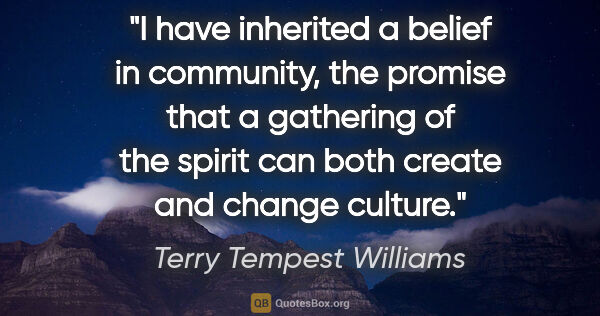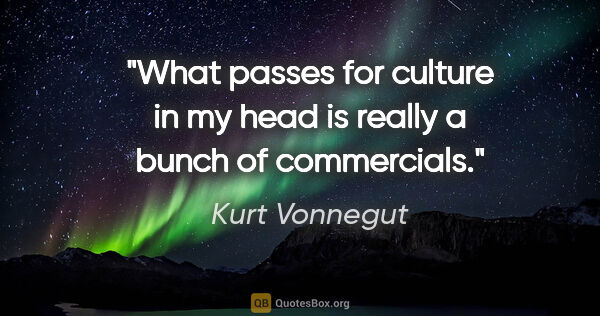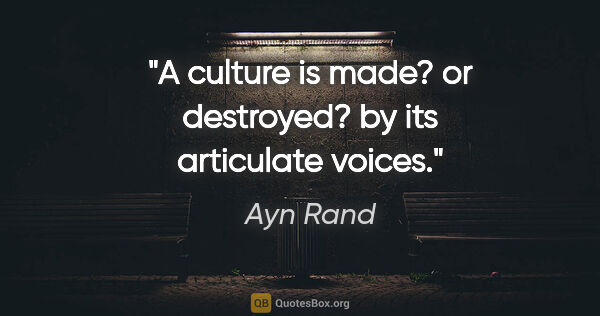Culture Quotes (page 41)
The NobodiesWho are not, but could be. Who don't speak languages, but dialects. Who don't have religions, but superstitions. Who don't create art, but handicrafts. Who don't have culture, but folklore. Who are not human beings, but human resources. Who do not have faces, but arms. Who do not have names, but numbers. Who do not appear in the history of the world, but in the policeblotter of the local paper. The nobodies, who are not worth the bullet that kills them.
Eduardo Galeano

Stories set in the Culture in which Things Went Wrong tended to start with humans losing or forgetting or deliberately leaving behind their terminal. It was a conventional opening, the equivalent of straying off the path in the wild woods in one age, or a car breaking down at night on a lonely road in another.
Iain Banks
My parents' work ethic amazed me. How could they put in such long hours, day after day?
Part of the reason was to keep the family going - to keep me going. I realized that, although we had different values derived from different cultures and wouldn't agree on certain issues, they were good people, incredible people, and I loved and respected them.
Harvey Pekar
The Catholic novelist in the South will see many distorted images of Christ, but he will certainly feel that a distorted image of Christ is better than no image at all. I think he will feel a good deal more kinship with backwoods prophets and shouting fundamentalists than he will with those politer elements for whom the supernatural is an embarrassment and for whom religion has become a department of sociology or culture or personality development.
Flannery O'Connor
There are no ordinary people. You have never talked to a mere mortal. Nations, cultures, arts, civilizations - these are mortal, and their life is to ours as the life of a gnat. But it is immortals whom we joke with, work with, marry, snub and exploit - immortal horrors or everlasting splendors. This does not mean that we are to be perpetually solemn. We must play. But our merriment must be of that kind (and it is, in fact, the merriest kind) which exists between people who have, from the...
C. S. Lewis
In mysticism, knowledge cannot be separated from a certain way of life which becomes its living manifestation. To acquire mystical knowledge means to undergo a transformation; one could even say that the knowledge is the transformation. Scientific knowledge, on the other hand, can often stay abstract and theoretical. Thus most of today’s physicists do not seem to realize the philosophical, cultural and spiritual implications of their theories.
Lois McMaster Bujold



